Achieving thicker hair is a goal shared by many who struggle with hair loss, thinning hair, or naturally fine strands. Whether you're experiencing female pattern hair loss, temporary shedding, or simply want to boost hair thickness, this guide covers natural hair growth remedies, dietary strategies, styling hacks, and medical treatments to help you get thicker and longer hair—even in just one month.
How to Make Your Hair Thicker Step by Step
1. Eat Right
A healthy diet supports hair growth from the inside out. Proteins, iron, omega-3 fatty acids, and vitamins like A, C, D, and E are critical for follicle health. Include leafy greens, lean meats, nuts, and fish in your meals. Add foods like berries, eggs, and spinach to enhance hair density. Hydration is also important—drink enough water daily to support overall hair health.
2. Take Care of Your Scalp
The scalp is the foundation of healthy hair. Use exfoliating scrubs or shampoos that remove buildup, and massage your scalp to boost circulation. This encourages follicles to produce thicker strands. Using essential oils like tea tree or peppermint can also enhance scalp health. Avoid using harsh chemicals that may irritate or inflame the scalp.
3. Wash Your Hair in the Right Way
Avoid daily washing as it can strip natural oils. Use lukewarm water and a shampoo suitable for your hair type. Focus shampoo on the scalp and conditioner on the ends. Choose sulfate-free shampoos to avoid excessive dryness. Don’t forget to gently towel-dry to prevent mechanical damage.
4. Cut Your Hair
Trimming split ends regularly prevents breakage and makes your hair look healthier and thicker. Certain cuts, like blunt styles, can create the illusion of volume. Regular trims also prevent split ends from traveling up the strand. Consider styles that provide lift at the roots for added fullness.
5. Use Less Hot Styling Tools
Heat damages keratin, leading to hair breakage and thinning. Minimize heat styling or use heat protectants to shield strands from damage. Try heatless styling methods like braiding or wrapping to maintain hair integrity. Always use tools at the lowest effective temperature.
6. Use the Right Hair Products
Opt for hair thickening shampoos, conditioners, and serums. Products with biotin, keratin, or caffeine can temporarily increase hair volume. Avoid heavy silicones that may weigh hair down. Look for volumizing formulas specifically designed for thinning hair.
What Causes Thin Hair?
1. Genetics
Thinning hair often runs in families. Female pattern hair loss is hereditary and typically starts around the crown or part line. Hair density and growth rate are also largely determined by your DNA. Genetic thinning typically progresses slowly over time.
2. Stress, Hormonal Imbalance and/or Vitamin Deficiency
Emotional or physical stress, postpartum changes, menopause, and conditions like PCOS can all cause hair loss. Deficiencies in vitamins D, B12, or iron also lead to shedding. Maintaining hormonal balance through lifestyle and dietary changes can help. Blood tests may reveal deficiencies that are treatable with supplements.
3. Over-Styling and Over-Colouring Your Hair
Frequent dyeing, bleaching, or tight hairstyles weaken strands. These habits can contribute to breakage and hair that appears thin or falling out. Heat styling and chemical treatments should be limited to preserve hair strength. Let your hair rest periodically to avoid cumulative damage.
How to Make Your Hair Thicker Through Diet
Nourishing your body is key to achieving thicker hair naturally. Incorporate these:
- Protein: Keratin, your hair's primary component, is a protein.
- Iron: Prevents anemia-related hair loss.
- Omega-3 Fatty Acids: Found in fish and flaxseed, they hydrate the scalp.
- Zinc and Biotin: Essential for follicle strength and hair growth.
Which Vitamins Help to Make Hair Thicker?
- Vitamin D: Promotes healthy follicle cycles.
- Biotin (B7): Strengthens keratin infrastructure.
- Vitamin C: Helps absorb iron and supports collagen production.
- Vitamin A: Supports sebum production for a healthy scalp.
Can Thin Hair Become Thick Again?
Yes, in many cases, thin hair can become thicker with proper care. If the hair follicles are still active, they can be stimulated through nutrition, proper hair care, or medical treatments. Consistency is key—results may take several months to become noticeable. Avoiding harsh treatments and stressors can also preserve existing hair and encourage regrowth.
Can Rosemary Oil Help to Thicken Hair?
Rosemary oil has shown promising results in promoting hair growth. It improves blood circulation in the scalp, potentially revitalizing dormant follicles. It can be applied diluted or found in hair treatment products. Some studies suggest rosemary oil is as effective as Minoxidil for certain individuals. Consistent use over 4–6 months is typically required for visible results.
How to Cut Your Hair to Make It Look Thicker
Choose cuts that create the illusion of fullness:
- Blunt Bob: Ends at the same length, enhancing density.
- Long Layers: Add movement and body without thinning the ends.
- Curtain Bangs: Frame the face and add volume at the crown.
What Does the Research Say?
Below is a quick comparison of natural remedies and medications used for hair thickening:
| Natural & Medical Solution | Key Benefit | Best For |
|---|---|---|
| Egg Mask | Rich in protein and biotin | Weekly nourishing masks |
| Olive Oil Treatment | Moisturizes and adds elasticity | Dry or brittle hair |
| Rosemary Oil | Stimulates scalp and follicles | Early-stage thinning |
| Minoxidil | Enlarges follicles and extends growth phase | Both men and women |
| Finasteride | Reduces DHT levels | Male pattern baldness |
| Scalp Massage | Boosts blood circulation | All hair types |
| Balanced Diet | Strengthens hair from the inside | Long-term follicle support |
Studies suggest that Minoxidil is effective for treating hair loss and promoting density. A 2015 study in the Journal of Dermatology showed significant improvement in hair diameter with 5% Minoxidil use. Nutritional deficiencies were also linked to hair thinning, especially in women.

Natural Remedies to Thicken Hair
1. Eggs
Rich in protein and biotin, egg masks can strengthen strands and promote hair thickness. Apply once a week for visible results over time. Rinse with cool water to avoid cooking the egg on your scalp.
2. Olive Oil
Olive oil moisturizes the hair shaft and improves elasticity, reducing breakage and making hair appear thicker. Warm the oil slightly before applying to enhance absorption. Leave it on for 30 minutes before rinsing.
3. Proper Nutrition
A balanced diet remains the foundation for long-term hair health. Nutrients like zinc, selenium, and folate support strong, vibrant hair. Avoid restrictive diets that may deprive your follicles of essential nourishment.
4. Orange Puree
Loaded with antioxidants and vitamin C, oranges support collagen production for healthier hair. The acidity also helps remove product buildup from the scalp. Blend fresh oranges and apply the puree as a mask for 15 minutes.
5. Aloe Gel or Oil
Soothes the scalp and conditions hair, potentially encouraging better growth. Aloe helps balance pH levels and reduce dandruff. Use fresh aloe or products containing a high percentage of aloe extract.
6. Avocado
Packed with vitamin E and fatty acids, avocado masks can hydrate and strengthen the hair. Combine with honey or olive oil for enhanced benefits. Use weekly to restore shine and moisture.
7. Castor Oil
High in ricinoleic acid, castor oil boosts blood circulation in the scalp and nourishes follicles. Its antimicrobial properties also support scalp health. Apply a small amount and massage gently for 5–10 minutes.
8. Coconut Oil
Strengthens hair from the root, prevents protein loss, and reduces breakage. It also protects the hair from environmental damage. Use as an overnight mask for deep conditioning.
9. Rosemary Oil
As mentioned, rosemary oil may support regrowth and improve hair thickness. Use it with a carrier oil like coconut or jojoba to avoid irritation. Massage into the scalp 2–3 times per week for best results.
Hairstyling and Scalp Massage
Styling tricks like backcombing or using volumizing powders can make thin hair look thicker. A regular scalp massage increases blood flow and encourages follicle stimulation. Use oils during the massage for enhanced benefits. Avoid tight hairstyles that pull on the roots. Let hair air-dry when possible to prevent additional stress.
Medications
Medications can be effective for reversing hair loss and increasing thickness when used consistently. Always consult a medical professional before starting any treatment, especially if you have underlying health conditions.
1. Minoxidil (Rogaine)
FDA-approved for both men and women, Minoxidil for hair loss helps enlarge hair follicles and extends the growth phase. It may take 3–6 months to see visible improvements. Consistency and long-term use are crucial for effectiveness.
2. Finasteride (Propecia)
Primarily prescribed for men, this DHT blocker slows hair loss and may aid regrowth. It’s not usually recommended for women. Side effects may include changes in libido or hormonal balance.
Effective Hair Thickening Methods for Men
Men experiencing hair thinning have several effective options tailored to their needs. From daily care habits to clinical procedures, consistency remains key for seeing results. Understanding which methods align with your hair type, lifestyle, and goals is essential. Some techniques show quicker results, while others are part of a longer commitment.
1. Wash Carefully
Avoid harsh shampoos and aggressive drying methods. Use a mild, sulfate-free shampoo to maintain scalp balance. Pat hair dry with a towel instead of rubbing it aggressively.
2. Style Differently
Use mousse or clay instead of gels to avoid flattening thin hair. Lightweight products add volume without weighing strands down. Try blow-drying with a round brush for added lift.
3. Stay Away from Strong At-Home Hair Treatments
Avoid bleaching and over-coloring. These treatments weaken the hair shaft, leading to breakage and thinning. If coloring is necessary, opt for professional, ammonia-free formulas.
4. Scalp Micropigmentation Treatment
A non-surgical option that simulates fuller hair by tattooing pigment into the scalp. It creates the illusion of hair density without actual growth. Results are immediate and require minimal upkeep.
5. Smoke Less
Smoking restricts blood flow to hair follicles, worsening hair loss. Toxins in cigarettes can damage DNA in hair follicles. Quitting can improve circulation and support hair regrowth.
6. Plasma Treatment
PRP (platelet-rich plasma) uses your own blood’s growth factors to boost hair growth. The treatment enhances follicle activity and can be combined with other therapies. Sessions are usually spaced a few weeks apart for best outcomes.
7. Manage Your Stress Levels Effectively
Chronic stress can cause hair loss. Meditation, therapy, and exercise can help. Prioritize sleep, hydration, and relaxation techniques as part of your routine.
8. Consult a Doctor About Medical Solutions
If hair thinning persists, seek advice from a dermatologist about prescription medications or hair replacement surgery. Early diagnosis increases treatment success. A medical expert can personalize your regimen based on your hair type and health.
We’re ready to answer your questions
Genetics, stress, poor diet, and hormonal imbalance can cause thinning. With early intervention and proper care, it can often be reversed.
Biotin, Vitamin D, Iron, and Vitamin C are vital for supporting hair growth and follicle strength.Yes, nutrient-rich diets fuel follicles with essential compounds to grow thicker hair naturally.It improves circulation in the scalp, stimulating follicles to produce thicker strands.Yes,eggs, olive oil, avocado, and castor oil are proven natural hair growth remedies.Blunt bobs, long layers, and curtain bangs can add dimension and thickness to the look of thin hair.Yes. Minoxidil stimulates hair follicles while Finasteride reduces DHT, both helping to improve density.?Many strategies—like scalp care, diet for thicker hair, and natural oils—are effective for both. However, medications may differ in safety and suitability.
Follow us on social media for updates, tips, and patient success stories:


